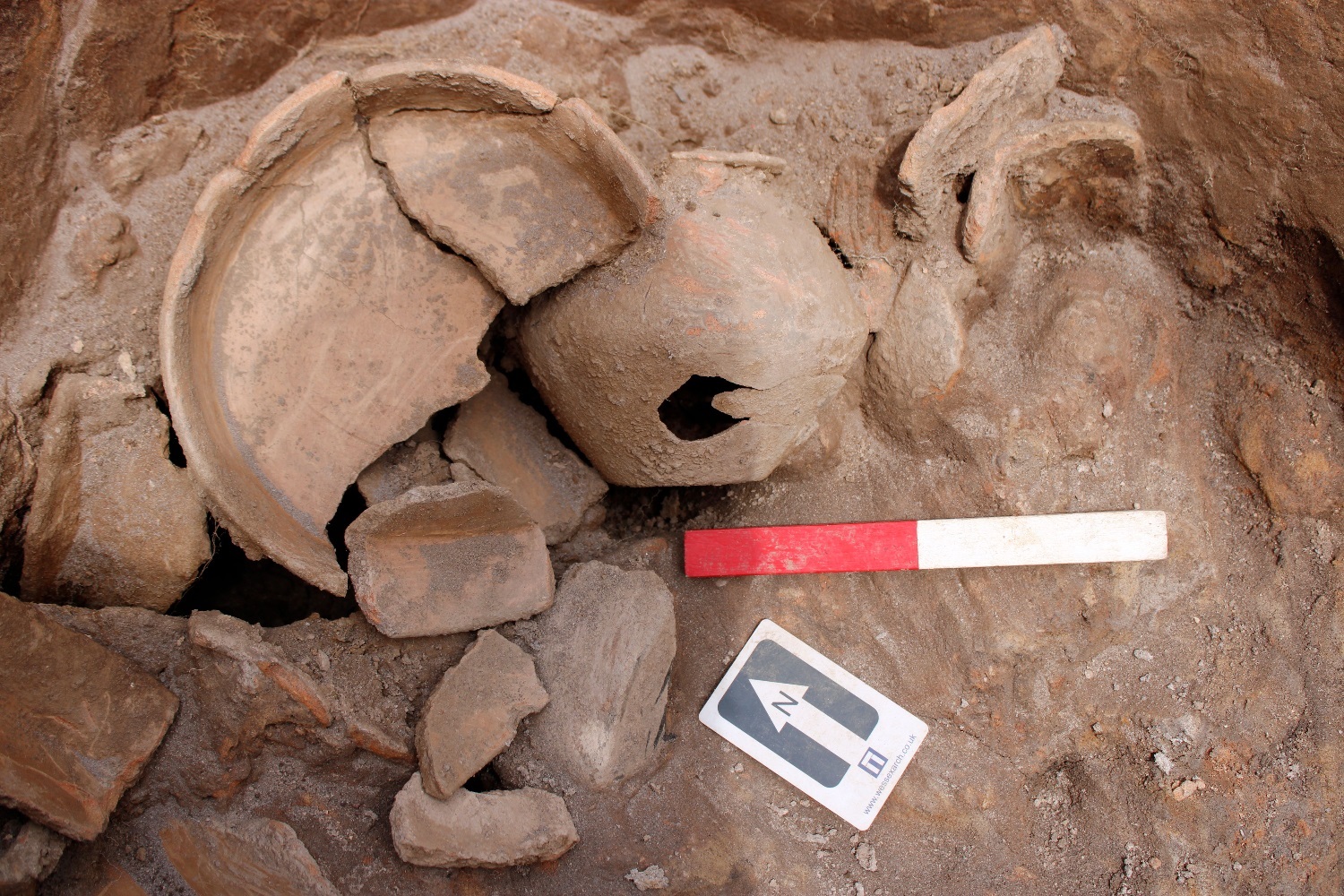Archaeologists from Wessex Archaeology have found evidence of a major Roman pottery industry near Poole Harbour in Dorset, southern England.
Excavations are part of “The Moors at Arne” project, a scheme on the Isle of Purbeck to adapt 150 hectares of low-lying grassland into diverse wetlands.
According to a press release by Wessex Archaeology, archaeologists have unearthed more than 17,000 fragments of pottery, two kilns, and the remains of several Roman structures.
The majority of the fragments relate to the manufacture of a particular type of Romano-British pottery known as Black Burnished ware, characterised by dark charcoal-coloured jars, bowls, and dishes.
Greg Chuter, the Environment Agency Archaeologist leading the programme explained that this type of pottery was popular within the Roman Army and eventually made its way into everyday use among the civilian population.
Several pots discovered in situ are in a near complete state, however, they appear an orange colour due to an error in the chemical reaction in the clay during the firing process in the kilns.
Phil Trim, Fieldwork Supervisor from Wessex Archaeology who has been excavating the site said: We’re gaining fantastic insight into the inner workings of a Roman pottery production site, operating on a significant scale on The Moors at Arne.”
“From the sheer number and variety of the fragments we’ve uncovered and the kilns themselves we’re able to start understanding the processes and the challenges they might have faced achieving that specific Black Burnished ware finish,” added Trim.
The excavation will feature on BBC Two’s Digging for Britain, presented by Professor Alice Roberts.
Header Image Credit : Wessex Archaeology
Sources : Wessex Archaeology





